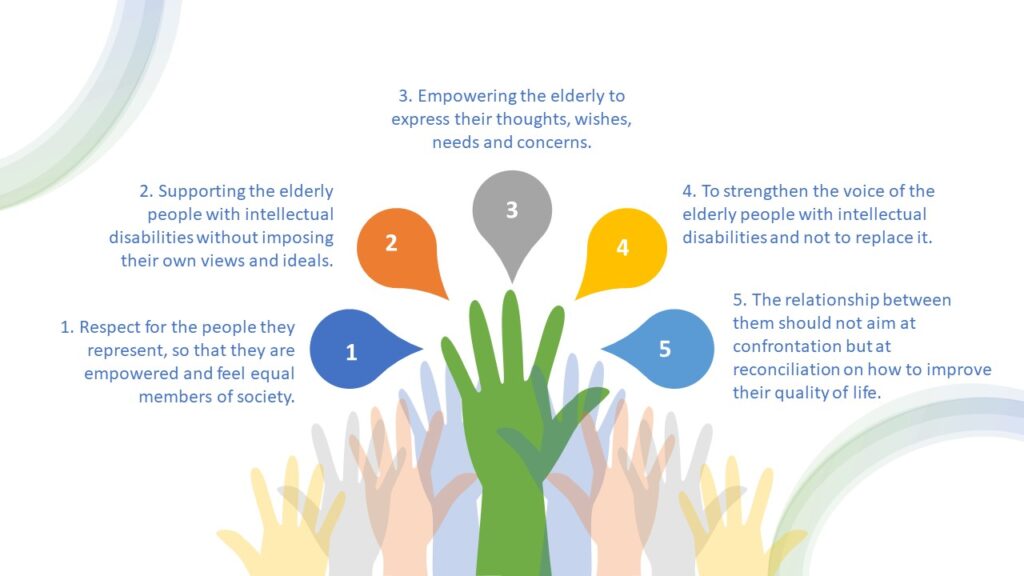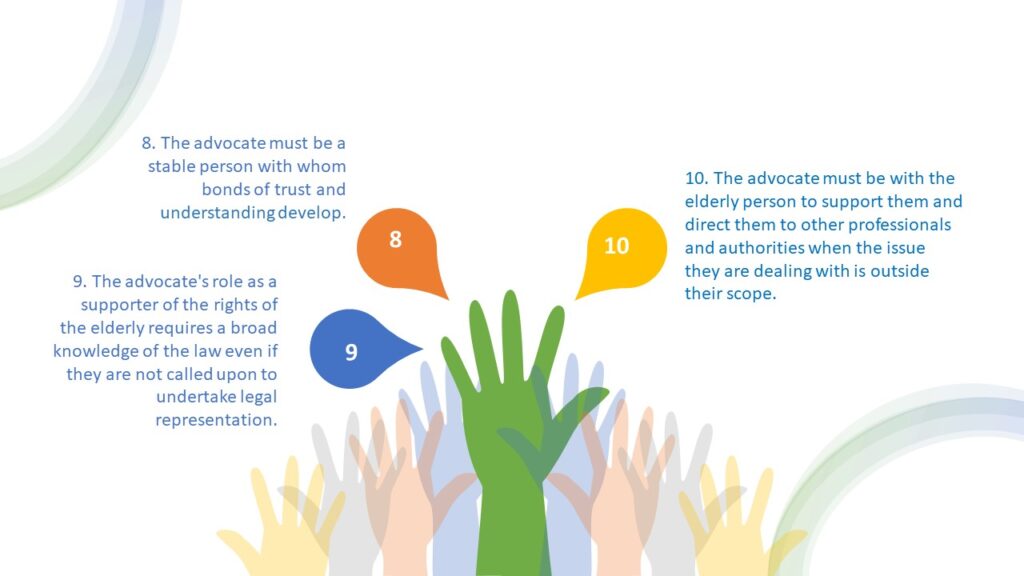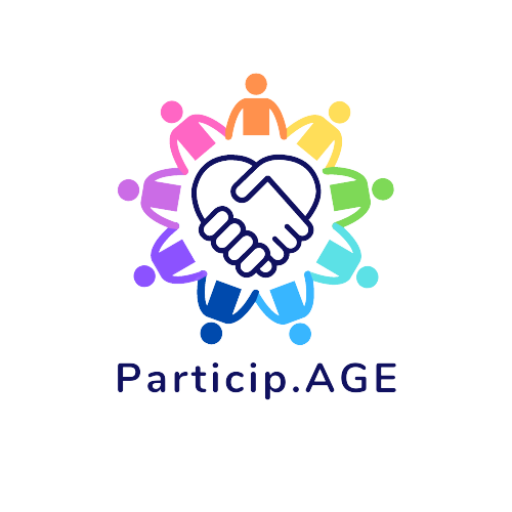How to enhance communication skills to advocate for the inclusion of ageing individuals within the community
What is advocacy?
Advocacy is a general term that describes a method, approach and set of tools used to:
- change policies and practices
- reform institutions
- change power relations
- change attitudes and behaviors.
Why are communication skills so important to advocacy?
Advocacy is about influencing and persuading people and institutions to change, and that won’t happen if you’re not able to communicate your ideas and proposals effectively.
There are two types of advocacy communication:
1) Guided : Refers to people who are able to ask for support.
2) Unguided : Refers to cases of people who cannot ask for support.
How can we enhance staff communication skills to advocate for the inclusion of ageing individuals with intellectual disabilities within the community?
People with intellectual disabilities, and especially older people with intellectual disabilities, usually have very limited social and health care literacy, and social services/health providers have a responsibility to find ways to help them make appropriate use of services.
There are three aspects to social and health care literacy:
01
The service user’s ability to read and understand the provided services information.
02
The service user’s ability to be involved in the social/health care process.
03
Removing unnecessary complexity and barriers to service user’s understanding and participation concerning social/health care systems.
What are the necessary communication skills for staff working with people with intellectual disabilities as well as older people with intellectual disabilities?
What are the necessary communication skills for staff working with people with intellectual disabilities as well as older people with intellectual disabilities?
Working with people with limited language comprehension:
Use short simple sentences with everyday words to avoid jargon and allow the person time to process the information
Use pictures and photos of expression and emotion
Observe body language and showing respect, warmth and patience, as they are even more important than with other groups of people.
Show that they have understood what the person with an intellectual disability is saying
Give them time to formulate a response
Characteristics and skills of staff who advocate for the inclusion of ageing individuals with intellectual disabilities
Characteristics and skills of staff who advocate for the inclusion of ageing individuals with intellectual disabilities

Characteristics and skills of staff who advocate for the inclusion of ageing individuals with intellectual disabilities

Conclusion
Service providers need to develop their skills and knowledge to better support the communication needs of people with intellectual disabilities, so that their inclusion into society is smoother.

They do this by:
- By becoming familiar with available communication methods, and by understanding the range of different communication needs.
- By placing the servicer user needs at the centre of their work
It is very rewarding to gain the trust of a person and especially the trust of an individual with an intellectual disability.
This will not only help the people with intellectual disabilities but also help their advocates to get motivation for their personal development.
